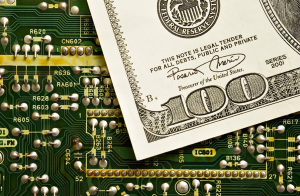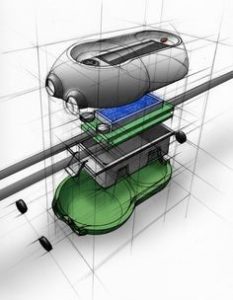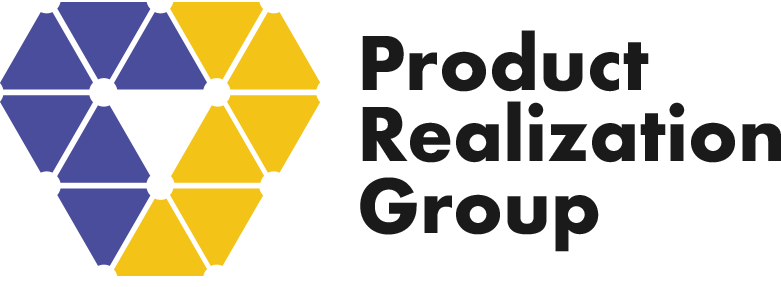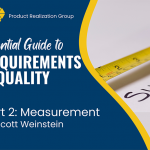Are you a hardware startup seeking funding? If so, you will want to prepare your business to gain the edge with investors. Hardware technology entrepreneurs often come from the engineering and research areas, and may overlook core business elements such as a complete team, a minimum viable product, sizable market, and a profitable cost structure.
For a pulse on the current state of hardware funding, take a look at a recent TechCrunch article on Who Invests in Hardware Startups 2016.
Join us for the next SV Hardware Startup-to-Scale Meetup on Tuesday, February 7, 2017 to hear from an expert panel of investors, finance, and a hardware startup.
Venture-Capital Tips for Hardware Startups

Investors ask a lot of questions – understand what is important before you present – you’ll find that investors want more than a cool product and passionate founders. Lior Susan, partner with Eclipse Ventures, a Silicon Valley VC focused on hardware startups, and keynote speaker at the 2015 PRG Hardware Symposium, described the 3 things he looks at when investing in hardware startups:
- The team.
- The product.
- The market.
He looks at the people on the team, whether they’ve worked together before, and the breadth of their engineering, design and manufacturing experience. As to the product, the question is whether it makes sense and can be manufactured (feasibility). For market, the industry must exist, such that spending is taking place. Another note about product, Lior does not believe in hardware standalones. A good hardware product model includes software and data.
Alastair Trueger, Founding Partner of Creative Ventures, an early stage hardware investor, recommends the following 5 Tips for Hardware Startups:
- Choose your team wisely. Recruit excellent people that are aligned with your business and with your market. ie. consumer vs. industrial vs. medical.
- Understand underlying business economics. Hardware products don’t scale as fast as software. How big is the market? What are your margins? What will it take to get your product to scale? Will your business be of interest to investors?
- Have multiple paths for success. Hardware commercialization is hard.
- Don’t get stuck on valuation when dealing with investors. The most important thing is the overall value that the investor will bring to your business.
- Focus. Do one thing well.
To help enable your hardware business success, and make it more attractive to investors, think about incorporating the Four Enablers: Making Hardware Less Hard by Tandem Capital, a Silicon Valley Seed investor.
The Finance Perspective

Ryan Keating, Managing Partner at Keating Consulting Group, a Silicon Valley based financial and professional services firm, works with a startup preparing to seek funding, and suggests the following set of guidelines:
- Without exception, before getting funding, you have to be fundable. Focus on getting fundable. Funding will follow.
- Investors generally don’t invest in good products alone; they invest in good businesses.
- Financial model and plan has to show a realistic path to profitability and scale.
- Financial model should reflect metrics that hardware investors hone in on. It shows you know your stuff.
- If you raise funding, your reporting and visibility requirements will become real.
- Investors need to feel comfortable with your financial discipline.
- Take this opportunity to impress and prepare for growth.
- Try to stay “diligence ready,” within reason.
- Stay focused on real traction (product & growth) – don’t get distracted by minutia.
Don’t Underestimate Development

According to Michael Keer, CEO of the Product Realization Group, hardware startups are notorious for underestimating critical development areas, and recommends the following:
- Set a realistic development budget supported by your business plan.
- Define a Minimum Viable Product (MVP) and manageable scope of development. Feature creep can blow your schedule and budget.
- Plan design iterations and validation testing into your schedule – one is not enough, it may three or more, depending on product complexity.
- Take regulatory requirements seriously – getting on the wrong side of regulatory agencies like the FDA can shut your business down (think Theranos).
As part of our Product Roadmap, PRG assesses hardware startups, identifies gaps, works to overcome areas that may have been overlooked, and delivers critical expertise.
Advice from a Hardware Startup – Roost
As Roel Peeters, Founder and CEO of Roost, described it at the 2015 PRG Hardware Symposium, the challenge to becoming a successful company is understanding the milestones you will achieve with the money you seek to raise and understanding how to mitigate risks to achieve milestones. At the Angel stage, Peeters used a Kickstarter campaign not to raise money, but more importantly to generate feedback and market validation of their product.

Before seeking series A venture funding, Roost engaged in a Product Roadmap to better understand Roost’s operational and manufacturing risks, which helped to set the pricing and schedule for Kickstarter, and ultimately led them to bring on a VP of Operations before they sought their series A funding. Peeters described this as part of pro-actively knowing, understanding and mitigating his potential investor’s risks.
When a start-up invests early in assessing risks before scaling a product to mass production, the cost to make any course correction is greatly reduced. PRG recommends organizations to invest early, test early, study feasibility early– identify and mitigate risks as early as possible.
Join us for our next Meetup on February 7: Preparing your Hardware Startup to get Funded
Join us for the next SV Hardware Startup-to-Scale Meetup on Tuesday, February 7, 2017, from 11:30AM to 1:45PM at TechCode, 1172 Castro Street, Mountain View (map)
Panelists:
- Ted Kraus: Investment Director, TechCode AI Accelerator (Investment)
- Bradley Leong, Hardware Partner, Tandem Capital (Early stage investment fund)
- Ilya Rosenberg: Co-Founder and CEO at Sensel, Inc. (Startup)
- Ryan Keating: Managing Partner, Keating Consulting Group (Finance)
RSVP at Meetup.
Get a FREE Product Development Roadmap consultation!
Comments? Questions? Join the conversation on Facebook!


